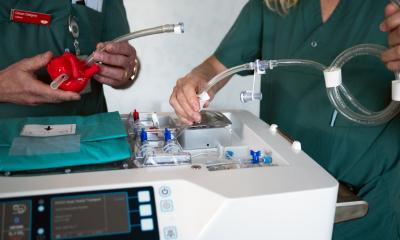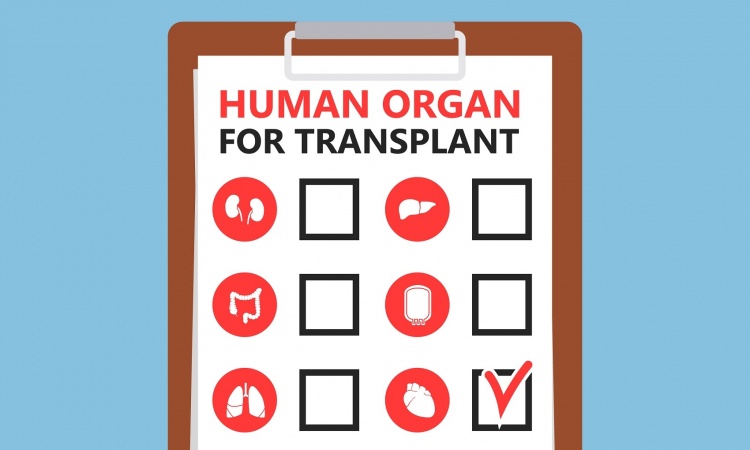News • Public knowledge and attitudes
A look at organ donation policies across Europe
A European comparative study has evaluated national organ donation policies in seven countries from an ethical perspective. For the first time, knowledge and attitudes towards organ donation regulations in different European countries were investigated in combination.

Photo: Vincent Leifer
The study was published in the journal PLOSone.
More than 2,000 students from seven European countries (Germany, Denmark, Austria, Belgium, Spain, Greece and Slovenia) were surveyed for this comparative study with its novel assessment model for national organ donation policies. The study was co-initiated by Prof. Dr. Silke Schicktanz of the Department of Medical Ethics and History of Medicine at the University Medical Center Göttingen.
To evaluate national health policies on organ donation from an ethical point of view, the researchers established two indicators: One is the ability of the policies to incorporate the values of the majority into legal regulation. Thus, the model that should apply by law is the one a majority of the population also supports. The other one is taking as a benchmark the ability of policymakers to safeguard the unexpressed interests (preferences) of those who disagree with the current model. "The moral and democratic quality of such modern health policies is measured by how they deal with the preferences of the minority," says Prof. Schicktanz.
Not all of the examined European countries performed equally well. In Germany and Denmark, the level of knowledge on organ donation regulation was found to be high. But half of the respondents would like to see a different regulatory model in place. In Slovenia, respondents showed great knowledge deficits and a majority was against the current regulation in their country. In Spain and Greece, a considerable rate of respondents knew little about their countries' regulations on organ donation. Many believed that one must speak actively out in favor of donation. However, the regulations in these countries stipulate that anyone can become an organ donor unless an objection is expressed (i.e. the system of opt-out). However, the majority of respondents in Spain were precisely in favor of this regulation. Consequently, anyone who does not wish to donate may become an organ donor unintentionally.
Recommended article

Article • Transplantation
Organ donation in Germany - the gruelling fight for trust
Whilst Spain has announced a new record for organ donations the number in Germany is stabilising at a ‘low level’. The good news? The number did not fall any further following scandals surrounding the manipulation in the allocation of donor organs.
The research group examined the quality of national health policies with respect to organ donation from an ethical point of view using a specifically developed 2-indicators-model. The study is guided by the ideal of informed support. This describes the degree to which citizens are informed about the current legal organ donation regulations as well as the degree to which they support the current model. Therefore, this study has for the first time analyzed both knowledge and attitudes towards organ donation regulation in different European countries combined.
For the future, the researchers suggest using nationally representative population data as the basis for their analysis and ranking model. In this way, even more precise statements about the quality of national organ donation policies could be made. It is also conceivable that their model could potentially be applied to Covid-19 policy; especially in cases where individual preferences do not seem to be compatible with the public interest.
Source: University Medical Center Göttingen
07.07.2021







